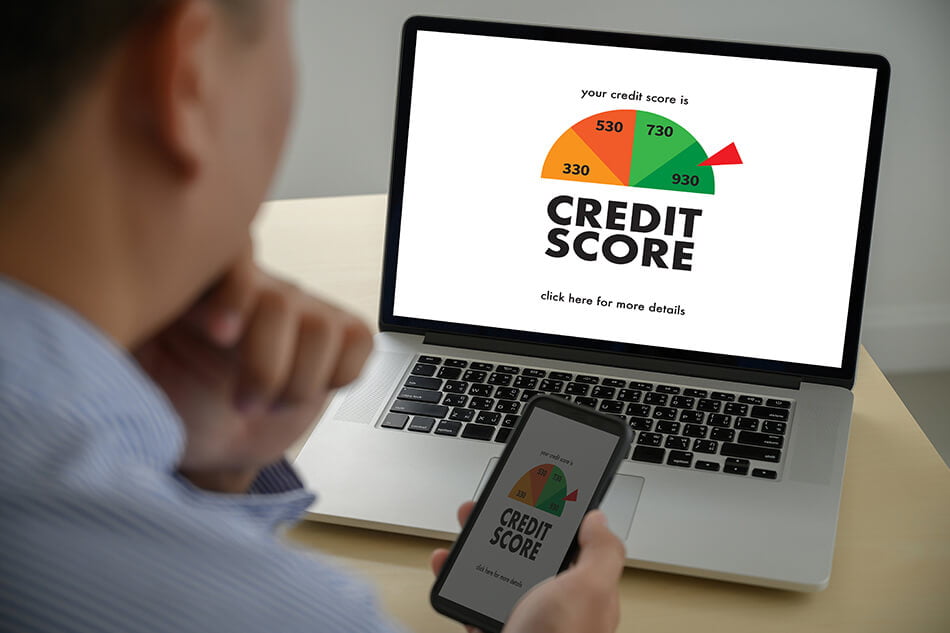Buying a house goes far beyond the initial purchase price. Negotiating the property purchase with a real estate agent is just one element of the costs involved in the buying process. It’s not like going into a shop, seeing the price tag, and making the purchase there and then.
Property purchases can cost tens of thousands of dollars. Therefore, it’s vital that you, as a buyer, understand the actual price of buying property. Moreover, there are plenty of hidden costs. Have you thought about pest inspection fees and conveyancing fees, for example? Or, how much does the home loan really cost?
Whether you’re a first home buyer purchasing your new home or already an owner-occupier moving on to the next property, moving home is expensive. You need to budget for far more than a deposit. Follow our guide to discover all of the costs of buying a house. From upfront costs to ongoing and hidden fees, we’ll unpack it all.
Conveyancing and Legal Fees
Conveyancing and legal fees are some of the first expenses you’ll need to pay when buying or selling a house. Essentially, these costs are delivered to your solicitor to complete the legal paperwork. This will include drawing up the contract of sale, exchanging the contract, and completion. They will typically complete other legal documents associated with the buying process.
Engaging a good solicitor can help you speed up the process, enabling a swift and safe sale. While technically you don’t need a legal professional, it’s highly recommended. Apart from anything, a solicitor can help you avoid costly mistakes. It’s worth shelling out the money for a good solicitor.
Most conveyancing fees are somewhat standardised. Additionally, you can often pay a fixed price for their services. However, make sure you know what is and isn’t included with the fixed fee. Any additional service might come at extra costs.
Legal fees depend on the complexity of the transaction.
Estimated Cost of Conveyancing:
Between $1,000 – $3,000, depending on the job required and whether you opt for a team or a private solicitor.
Stamp Duty
Stamp duty is a government tax based on the transference of certain legal documents, usually land and assets. When you purchase a house, the property title transfers to you. Thus, you have to pay stamp duty.
Stamp duty is costly. It can cost tens of thousands of dollars. The precise amount that you pay will depend on your property, its value, territory, and if you’re a first home buyer. Whether it’s an established home, a newly built home or vacant land also impacts how much stamp duty you pay.
The more costly the home, the more stamp duty you pay.
However, some states offer exemptions to first home buyers. For example, on a $650,000 house, first home buyers don’t have to pay stamp duty in New South Wales. Properties between $650,001 and $850,000 come with a partial concession.
For non first home buyers, stamp duty costs $1.25 for every $100 up until $14,000. Up until $32,000, it’s $175 plus $1.50 for every $100 over $14,000. And so on.
Estimated Cost of Stamp Duty:
The current average house price in Sydney is $1,106,279. The stamp duty will cost $45,721.
Pest and Building Inspections
Before purchasing a house, you must hire a qualified inspector to conduct a pest and building inspection. The building inspection report will detail the property’s condition.
A home inspection differs from a valuation. The mortgage lender will complete the property valuation to ensure that the house is worth the loan amount. You don’t need to pay for this.
A building and pest inspection cover everything, including faulty roofs, rising damp, cracked walls, and more. It will usually also include details on whether you can repair the faults and their cost. A building inspection doesn’t have to include a pest inspection, but it’s sensible to check for termites and other pests. Inspecting for pests often comes at an additional cost.
Estimated Cost of Pest and Building Inspections:
Pest and building inspection costs vary depending on where you live. Those in more central city areas usually charge more. You’ll typically expect to spend $200 – $500.
Mortgage Registration and Transfer Fees
When buying a house, most of us need to apply for a loan. Beyond the house deposit and mortgage repayments, you will also need to pay for the home loan’s admin. Fortunately, finding your home loan is free. The lender will pay your Sydney financial broker a commission.
However, there are other costs to consider.
A mortgage registration fee formally registers the mortgage. Essentially, it records the property as security against the home loan. If, for any reason, you cannot make your mortgage repayments, the lender has legal access to your property. A transfer fee is the price to transfer the property ownership to you, the new owner.
You pay a mortgage registration fee when the mortgage is established or paid out towards your property. Your conveyancer will organise the mortgage registration fee along during the settlement period with other costs, like stamp duty.
Estimated Cost of Mortgage Registration and Transfer Fees
Mortgage registration and transfer fees change year on year. As of January 2022, they each cost $147.70 in New South Wales. It’s a reasonably minimal sum compared to other expenses, yet worth factoring in.
Loan Application or Establishment Fees
A loan application fee covers the costs of setting up a mortgage with a lender. The exact amount depends on the lender, the size of the loan, and other aspects. It might either be a fixed fee or a percentage of the loan amount. Many lenders might waive the loan application fee or offer a discount if you’re using a mortgage broker.
Mortgage brokers have a panel of lenders they work with. If you secure a loan through one of their lenders, you may receive other discounts, such as lower interest rates and other waived ongoing costs.
Estimated Cost of Loan Application:
Generally speaking, you can expect to pay between $300 – $600, although some might cost upwards of $1,000.
Lenders’ Mortgage Insurance (LMI)
Homebuyers have to save up a deposit to secure home loans. However, as a first home buyer, you’re likely to have a smaller deposit.
One of the primary considerations lenders take when analysing your financial situation before offering pre-approval is the loan to value ratio. The LVR is a percentage that expresses how much of the house purchase is funded by the loan. Most lenders prefer home buyers to have a loan to value ratio of no more than 80% – requiring a 20% deposit.
However, many lenders will still offer a loan to those with a higher LVR. In this instance, they require you to take out Lenders’ Mortgage Insurance. LMI is a hefty sum, paid upfront. However, most lenders will allow you to roll it into the mortgage. There are two leading Lenders’ Mortgage Insurance providers in Australia, Genworth Financial and QBE LMI.
LMI depends on the type of loan you’re getting, the lender you have chosen, the size of your deposit, and various other aspects.
Estimated Cost of LMI:
There is no exact amount for mortgage insurance as it depends on so many factors. However, for a $500,000 property, with only a 10% deposit, the estimated LMI would be about $12,000. Although, if you finance the LMI with your home loan, you won’t need to pay anything upfront. Instead, your monthly repayments will be higher.
Council and Water Rates
Council and water rates are ongoing costs to consider when buying a house. The seller should have paid any owed money until the end of the quarter – or at least until you take ownership of the house.
Council rates are decided by the local council, differing from suburb to suburb, and state to state. It usually depends on the value of the land.
Water, unlike most utilities, isn’t cut off when the house is sold. The seller should have paid up until the settlement date as with the council rate. Someone will read the water metre to confirm the amount as part of the settlement.
Estimated Cost of Council and Water Rates:
Council rates for those living in the City of Sydney – arguably the more expensive suburb – cost around $708.40. The water rates also depend on where you live. Here are the current water charges.
Sydney Water Service:
- Charge with a metre: $24.30
- Charge without a metre: $119.77
Insurance
Home and contents insurance is an ongoing cost of buying a house. Home insurance, also called property or building insurance, covers the main house, garage, other outbuildings, and permanently attached fixtures. It might require that all buildings covered can be locked.
Contents insurance covers everything inside the home that you cannot permanently fix to the walls, ceiling, or floor. For example, this might include furniture, TVs, and fridges. Home and contents insurance protects your assets against most dangers, such as fires, storms, or flood damage.
It’s possible to have two separate policies or as combined insurance.
Estimated Cost of Insurance:
Home insurance costs depend on the sum insured and the risk of claiming. For example, the insurer might look at the number of people in the house, the average age, the location, the surrounding crime rate, and the risk of flooding. Considering the number of variables, insurance costs vary greatly.
Comparison website finder.com.au suggests that the average policy to cover a house worth $500,000 and $100,000 content value would cost $144.13 a month in NSW.
Moving
Moving into your new home is an exciting prospect. However, the expenses go way beyond the purchase price. Packing up your possessions takes time. You have to pay a removal firm. Buy new furniture.
This expense depends on many variating factors. Where is the move to and from? How much needs to be moved? And so on. Most removalists charge at an hourly rate. Although, if you’re moving between states, they might charge differently.
Although the cost of hiring a removal firm might sound meaty, it’s worth the price for a smooth transition from the old home to the new home.
Of course, you might find it more worthwhile to hire or borrow a van and make the move yourself. This is especially true of smaller dwellings with fewer possessions. The good thing about removalists is that they will pack, load, unload, and reassemble your assets, taking the stress out of moving day.
Estimated Cost of Moving:
You should expect to pay between $75 to $300 an hour—double-check whether the quote includes packing materials or insurance. Interstate removal could cost upwards of $3,000.
Most removal firms will have calculators on their websites so you can determine more precisely how much you’ll spend. Let’s say you have a three-bedroom house. This would cost around $200 an hour for three movers, taking six to eight hours. The total price would be between $1,200 – 1,600.
Investment Property Costs
The costs of buying an investment property are much the same as a residential home. However, there are extra costs to consider.
These might include
- Leasing fees
- Property management fees
- Advertisement costs
- Repairs and maintenance
- Body corporate fees
- Tax
- Investment loan, interest, and bank charges
Estimated Cost of Property Costs:
The costs of running an investment property vary depending on many factors. Many Australians take advantage of negative gearing for their investment property.
Example Costs of Buying a House in New South Wales
Let’s say you’re a first home buyer looking at a small three-bedroom house in Sydney. With a 20% deposit on a property with a purchase price of $700,000, you won’t need to pay Lenders’ Mortgage Insurance. The loan is a variable one with a 30-year term.
Upfront costs of buying a house
- Deposit: $140,000
- Conveyancing fees: $1,200
- Stamp duty: $10,435
- Pest and building inspection: $250
- Loan application fee: $400
- Mortgage registration fee: $147.70
- Transfer fee: $147.70
- Moving house: $1,400
Ongoing costs of buying a house
- Loan repayments: $2,098 per month (for 30 years)
- Council and water rates: $710
- Insurance: $144.13 per month
This is just an estimate. The actual cost may differ significantly. Indeed, there are likely further hidden costs throughout the process of buying a property.
Get the latest news and updates from Lendstreet
Join and subscribe to our newsletter.
Key Takeaways
The purchase price is not the only expense you need to budget for. While saving up for a deposit is crucial, remember that you will spend a significant sum of your money on hidden costs. Stamp duty, legal fees, and moving house are expensive to pay out. Of course, first home buyers may be exempt from stamp duty.
Remember to budget the costs of moving out carefully – you’ll likely spend more than you expect throughout the process.
Schedule a call to one of our expert mortgage broker
Ask our expert mortgage brokers anything about home loans.
Related articles
If you're living in Australia and currently deciding whether to take out a home loan, it's essential to understand ...
If you're buying or selling an Australian property, you'll be faced with a contract of sale. Anyone who wants to ...
Key Takeaways: Lenders inform credit bureaus of your lending and repayments activities. Different credit reporting bureaus use different scale boundaries. ...









